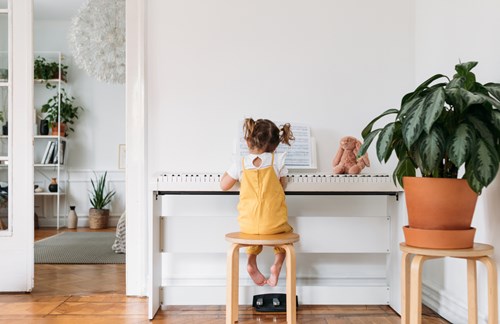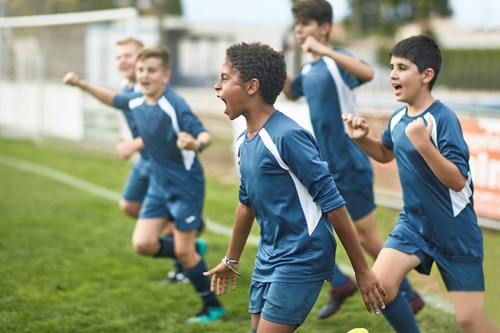Signing up your kids for extracurriculars is an investment.
It does not mean more free time for you.
1/3/2021
This article was revised on 17/8/21
by Maria Karachaliou, Founder of Momizen and mom of 3

I am a mom of three small kids and love to have fun with them. I also believe that connecting kids with creative and educational activities and sports, as early as possible in their formative years, helps them to discover what stimulates them, to learn to set goals, and eventually build confidence to be open to new experiences in the future. As a parent what matters to me is that they can make educated choices about themselves and what makes them happy, in the future, with and without me.
While I too need time for self-development as an individual, a parent, a wife, a friend, a business owner, and a member of my community, the last 7 years (since I gave birth for the first time) I have been hardwired to help my kids learn to navigate in a fast paced world a few years down the road with confidence and purpose.
For this I believe they need to be exposed to the world outside our immediate environment, through traveling, new experiences and meeting people from different backgrounds. On a daily basis, there are things that I can support them with but my husband and I can only fill the cup of experiences that their young minds can enjoy only so much. This is why we happily stand back when they need to be guided by an expert and prompt them in the right direction when they need us.
As soon as my children turned 4, 5 and 6 years old I signed them up to various extracurricular activities outside kindergarten and school, such as guitar lesson, piano lesson, English class, and Kumon math, all once a week. It was still too soon for coding. We live in Switzerland and schools have not closed due to Covid-19 imposed lock-down while group extracurriculars for up to 12 years old ran and still do as scheduled. Attending these classes for my kids has one main objective apart from improving their basic skills in spoken language and mathematics. It is to build a habit of “preparing” and “persevering” to achieve a desired outcome.
It wasn’t hard to introduce this new program to my kids, thankfully. To get them through the door I referred to English class as an activity class in English and Kumon math simply as math activity class. In their view activity classes were pretty much arts and crafts in a group environment. I also said their close friends would be attending, 70% true, but they didn’t call me out on it.
For their musical instrument, I offered them a perceived sense of freedom, and let them pick their own. We made a few trials with various instruments and finally settled with piano for the eldest and ghuitar for the 2nd. I am convinced that Popi from Trolls 1 & 2, was influential in their positive attitude to play an instrument and that is fine with me. I’ll take all the help I can get.

What no-one prepares you for
What nobody tells you and I couldn’t fathom as a new formative-year mom was how much time is required one-on-one at home with each child per activity on a daily basis to prepare for the next lesson, for the first 3–6 months at least. In order to really have observable progress and growth in each subject matter, each child and I would have to put the time together daily to study, repeat, focus, cry, struggle, etc., otherwise it is all counter intuitive.
Once in the very start, the piano teacher hinted to me that children’s progress in the beginning, unless they are a musical prodigy, depends on how supportive the parent is in their daily practice. I felt very supportive. I was there right? It didn’t really sink in right away, but it hit me hard a few days later.
Supportive meant sticking to the program daily practice when kids want to give up, supervising, motivating, bribing with candy for one more round of twinkle-twinkle with both hands, encouraging to try again when something seems impossible, feeling resented, ignoring the evil looks, etc.
I don’t know how other kids begin a musical instrument but a regular 10 minute practice every day did not translate to my daughter walking to the piano on her own, playing her notes, then happily getting ready for dinner.
It was an agonising 10 minutes filled with frustration, repetition, emotional blackmail and deep breathing on my part so that she could overcome the challenges and be happy with herself in the end. Ideally each practice should close with a feel-good factor as a reward for all the effort made but that’s not always the case. The same for guitar practice with my 2nd daughter, although to accommodate personality differences I resorted to reverse psychology since head-on confrontation didn’t work so well with her. Kumon and English homework at least in the very beginning followed suit. It gets easier after 6 months the latest, usually. But it gets harder first. My 4 year-old decided that Kumon math was not for him after 5 months, and that’s ok too. Learning is not a one-size-fits all process, plus he has time.
Managing expectations
I find it very difficult to keep up with their extracurricular homework schedule of 3 kids on a regular basis. And most of the time I don’t. According to the Swiss education system my kids are probably doing too much, because in theory after school they should be left to play while teaching is the school’s job. I'm not so convinced yet, because I feel my kids are happy when they can relate to the world around them as much as possible. In the first grade of Swiss public school, school ends before mid-day 3 times a week, and while I do believe that free play is important for developing the imagination, learning to resolve conflicts through role-playing and just for having the freedom to process intense days that kids have at school, there there is also enough time for short intervals of structured learning. The purpose in my opinion is to gradually build the habit of focus, preparation and perseverance towards a rewarding outcome. A feel-good factor that can help kids move on to other skills in the future because of the confidence that small wins instil in a developing personality.
For most parents including myself it is already challenging to keep a basic routine in the evenings and maintain a semi-harmonic household between 5–8pm. Not so seldom I fail in keeping everyone happy at the same time, and I’m ok with that as long as everyone gets their spotlight of focus and attention. The biggest challenge is to regularly devise clever ways to keep other siblings occupied while I focus on one. But I try to be fair, because there is one message should prevail from all of this. The message is that they are important and what they do is important, so I demonstrate this by doing it with them. After a year, they might switch to another instrument or decide they want to start a new extracurricular. By that time they will know how much work it takes to break into a new subject, and if they really want to they will have the mental tools to drive their own progress, theoretically speaking, My eldest is currently 7.
I was inspired to write this port one day when I picked up my daughter from piano class. She played well that day and the the teacher rewarded her with a chocolate for her improvement since the week before. When he also also gave me one I was surprised, he said we both deserved it. I looked at her, she smiled broad and wide and I smiled back. So tempted to say I told you so, but didn't. Just made a mental note to bring this up in case we end up in a shouting match at later in the day...

The In-depth edition is a personal testimonial of life with kids by moms, dads and experts who also happen to moms and dads.
It is the tribe to share the highs and lows with. We touch upon serious topics through personal experiences, humour and hard truths.
